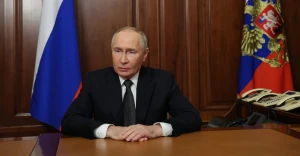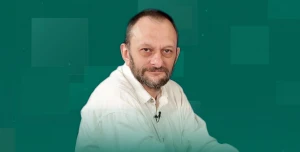
Ruthless multicultural xenophobia on rise in Russia
Xenophobia and hatred seem to be deeply ingrained in modern-day Russia, and the impunity for expressing these sentiments has intensified animosity towards anyone who appears different in terms of appearance, language, or thought
Ukrainian journalist Oleksandr Kovalenko writes about it in his analytical piece on Medium.
The events that unfolded at Makhachkala Airport on Sunday afternoon, where radicals searched for Jews allegedly arriving from Israel to Russia's Dagestan, were, unfortunately, predictable. Similar incidents occurred the day before in Khasavyurt, where a crowd of radicals raided a local hotel in search of Jewish guests. It seems xenophobia and hatred are deeply ingrained in modern-day Russia, and what's more troubling is that the impunity for expressing these sentiments has intensified animosity towards anyone who appears different in terms of appearance, language, or thought.
Historically, Russia has often channeled domestic issues by promoting hatred toward ethnic and religious groups other than Russians and Orthodox Christians. When state-sponsored propaganda fails to target outside groups for hatred, the people who have grown accustomed to animosity start turning against each other, even their neighbors from other federal districts or regions.
In the 1990s, the Russian government managed to divert public attention from the severe economic crisis by periodically allowing citizens to direct their anger toward individuals from the Caucasus. Xenophobia became a lifeline for the incompetent officials in the Kremlin, and under Vladimir Putin's leadership, these processes escalated. Conflicts rooted in ethnicity were not only exploited but also catalyzed and interethnic hostility was encouraged.
Russia's troubling embrace of neo-Nazism
Under Putin, the Partizan center was established near St. Petersburg under FSB auspices, where hundreds of neo-Nazis from around the world received combat training. The center, run by the Russian Imperial Movement (RIM), provided trainees with the resources to practice urban warfare tactics. Many graduates ended up in conflict zones, including as part of the Wagner Group.
St. Petersburg became the new home for Rinaldo Nazarro, the founder and leader of The Base, an American paramilitary neo-Nazi group who fled from American justice to Russia, where he openly resides, confident that the FBI can't reach him there.
Russia also hosted the International Russian Conservative Forum under Putin's leadership, bringing together members of leading neo-Nazi and ultra-right parties from 11 European countries. The event was organized by the Rodina party, once linked to the infamous Russian politician Dmitry Rogozin, who was previously a regular participant in various neo-Nazi gatherings.
Under Putin, the neo-Nazi organization Russian Image operated in Russia for years, eventually becoming a core base for BORN, a group involved in armed robberies and contract killings, often in the interests of Russian security services. Some journalists affiliated with the Russian defense ministry have connections to this group.
Russian intelligence agencies under Putin actively sponsored European neo-Nazi organizations, including Golden Dawn in Greece, the National Democratic Party of Germany, Attack in Bulgaria, Lombardy League and New Force in Italy, the British National Party, the Swedes Party, The Danish party, and many others.
This legacy of xenophobia and extremism continues to cast a shadow on Russia's domestic and international policies, perpetuating tensions and conflicts.
- News













































